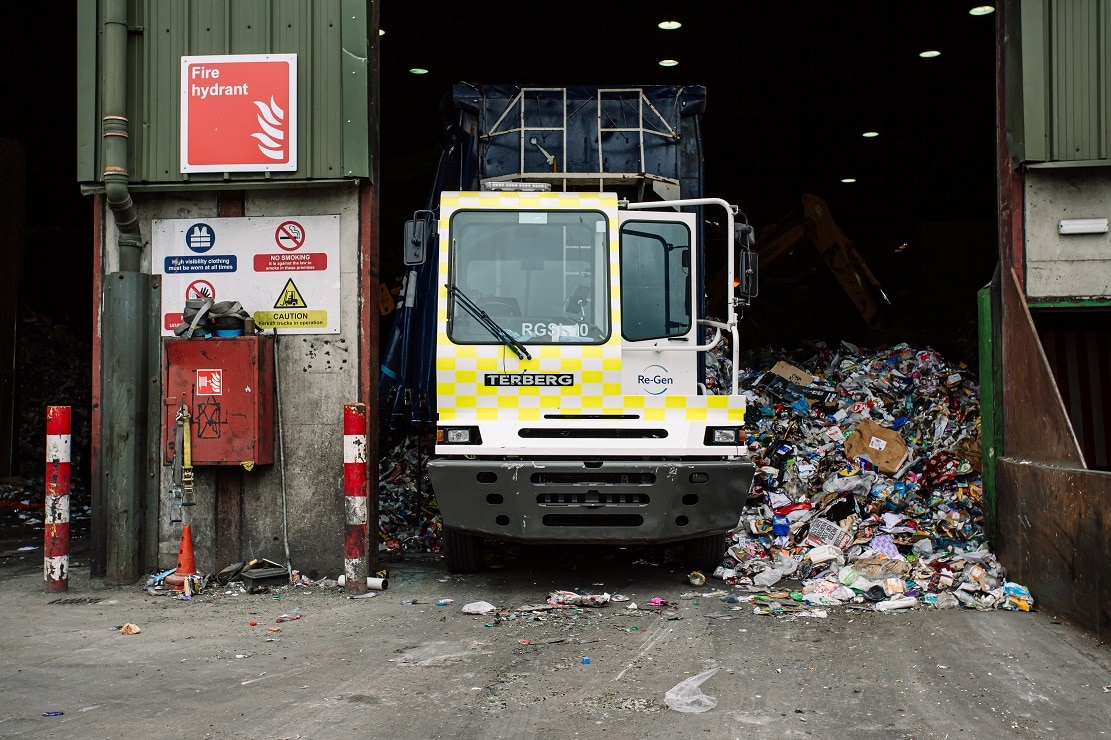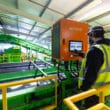
The way that waste in Northern Ireland will be handled over the next few years will change dramatically following consultations by Defra and the UK’s Devolved Administrations.
In Northern Ireland, the Department of Agriculture, Environment and Rural Affairs is still analysing the responses.
One of the most significant consultations was on plans to introduce Extended Producer Responsibility on packaging.
The concept of producer responsibility – placing the cost of recycling of products at end of life onto those that placed the products onto the market – has been applied across the EU and in many other countries for years.
The detailed workings of the system are still to be hammered out but it is expected that a central government-appointed administrator will be appointed to take responsibility for obtaining fees from the affected businesses.
The administrator will then pay local authorities and waste collectors for the costs involved in the collection, transport and recycling of packaging waste from households and small businesses for the packaging waste collection service.
A deposit return scheme (DRS) could be introduced to encourage the public to return beverage containers to collection points in return for a small payment.
Councils will be required to collect a more consistent range of recyclables to avoid the current uncertainty over what can actually be placed in the household recycling bin.
Joseph Doherty, Managing Director of Re-Gen Waste, believes that the intention is for changes to be introduced in 2024 at the earliest but may be later.
“There are big changes in the pipeline for 2024 although there has been optimistic talk of a 2023 start date”, he said, “it is hoped that the scheme will see an increase in recycling targets but, perhaps more significantly for businesses, current estimates are that it will see up to £2.7billion per year being charged to businesses that place packaged goods onto the UK market.
The scheme details are still under development but it is clear that a central government-appointed administrator will be appointed to take responsibility for obtaining fees from businesses.
Mr Doherty added: “The administrator will pay local authorities and waste collectors for the costs involved in the collection, transport and recycling of packaging waste from households and small businesses for the packaging waste collection service.
“Businesses will come under pressure to separate higher levels of materials for recycling. The anticipated new regulations will apply a far higher cost for packaging waste to affected businesses that the current system which has, on average, cost UK businesses between £50-150 million per year. The expectation of the new system is that those businesses that use difficult to collect and recycle packaging will pay a far higher cost that those whose packaging is easily collected and recycled, thus seeking to force businesses to place more sustainable packaging on the market.”
The goal is to reduce packaging and increase recycling levels, and it is clear that innovation will be required.
Recently, there has recently been widespread concern over the level of plastic that ends up as litter and polluting oceans.
Tensions between the main purpose of packaging and the end-of-life environmental impact that will have to be finely judged.
If more food is wasted through the use of more easy-to-recycle packaging, we need to question if there is a risk packaging reduction will lead to a shorter shelf life for food thus creating more waste food which is worse.
Mr Doherty said: “The potential costs of the deposit return scheme have led to widespread industry concerns, especially following the turmoil that been caused by Covid-19.
“However, the UK Government’s recycling minister Jo Churchill says it will be for businesses to decide if they will improve and reduce their packaging. The alternative is that they may just pass on the cost to the consumer.”
In 2018, the Government launched the Resource and Waste Strategy, a document that set a timeline for far reaching changes to the way that waste in managed to place much more emphasis on the Circular Economy and waste being treated as a resource.
Included in this was an intention to apply producer responsibility to a much wider range of materials to improve environmental performance and to transfer cost from the public purse to industry and ultimately, the consumer.
These include bulky waste such as furniture and mattresses, textiles, tyres, construction waste and fishing gear.
The waste industry is having to up its game to meet the challenges ahead.
Not only will the controls tighten, but there will need to be extensive investment in the way that waste is processed once it has been collected to achieve much greater separation and much higher quality of output for the recycling industry.
Re-Gen has already started that process and, we believe, is ahead of the game.
But there is no room for complacency and both householders and businesses will also have to play their part in correctly
separating out recyclable waste from non-recyclates.
Re-Gen has made significant investment in its recycling facility.
Mr Doherty concluded: “We need to consider the unintended consequences of packaging changes, how that will coincide with carbon usage and how the focus needs to be a joined up approach. The cost of food and carbon usage needs to be measured against the cost of packaging and a full life-cycle analysis together.
“The long-term target is that the UK will develop the recycling infrastructure necessary to be self-sufficient in capacity and maximise the circular economy opportunities. Coupled with that target is the global movement towards an environmentally friendly, intelligent and workable way to handle waste in the future. The creation of clean, green innovative jobs in design, research, manufacturing, engineering and technology is a challenge for our entire economy beyond the next five, ten or 15 years.”






